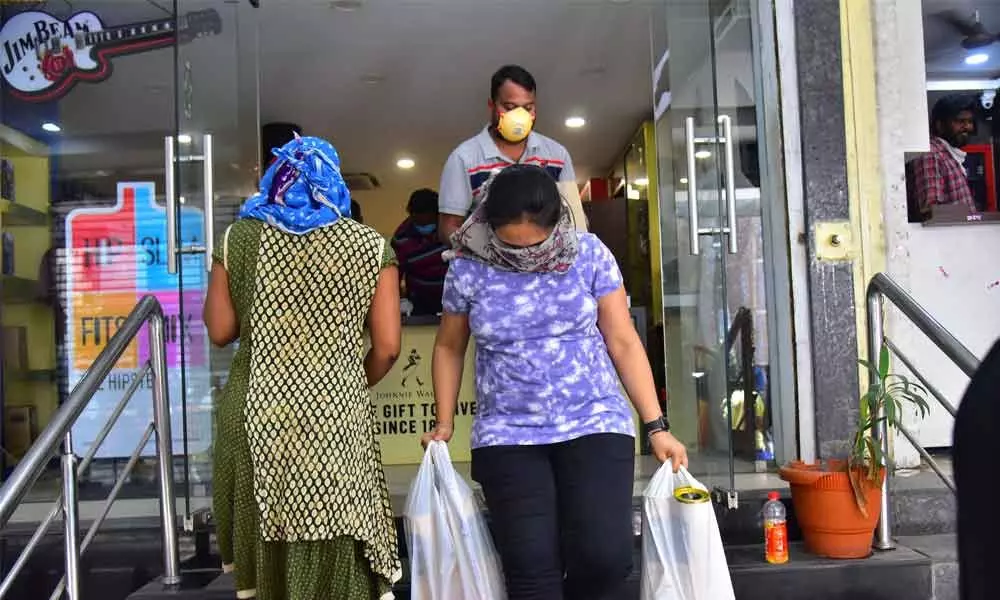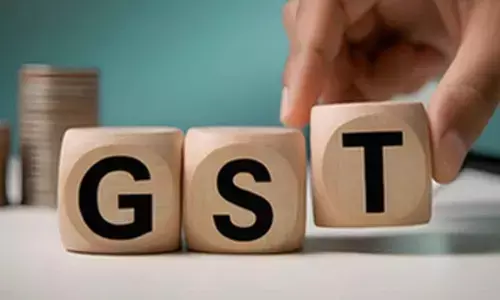Sale of booze in testing times: Tricky, yet feasible

The Ministry of Home Affair's (MHA) recent guidelines that paved the way for a calibrated resumption of various economic activities in low risk zones is a welcome step in the wake of the Covid-19 pandemic.
The Ministry of Home Affair's (MHA) recent guidelines that paved the way for a calibrated resumption of various economic activities in low risk zones is a welcome step in the wake of the Covid-19 pandemic. However, reopening of liquor vends and betel/gutka/tobacco (BGT) stores in all the designated zones (excepting hotspot areas and containment zones) raises a few eyebrows. William Shakespeare once famously said, "I would not put a thief in my mouth to steal my brain." There were reasons and evidences enough for the Union government to have taken the bard seriously. As was contemplated, opening of these stores created widespread chaos and scuffle that defeated the purpose of social distancing. But apologists have put forth three basic arguments – (i) States are losing out big chunks of revenue as sale of alcohol contributes substantially to the exchequer; (ii) People are experiencing severe alcoholic withdrawal symptoms; and, (iii) Suicide cases are reported over prohibition of liquor.
First, the economic repercussions are a reality since ban on liquor sales reportedly cause a collective revenue loss of a whopping Rs 700 crores per day to the State governments. There is no denying over the stiff trade-off between public and economic health. Professor Laura D Tyson (former Chief Economic Adviser to US President Clinton) once wrote that the governments faced a similar trade-off in times of war, popularly referred as – "guns versus butter". In essence, a society that chooses to spend more of its resources on defence and security must accept less expenditure on public goods. Some discerning critiques may, however, ask two pertinent questions: (i) Is India and for that matter the world currently not facing a war-like situation with nearly 5 million people infected and over 3.2 lakh precious human lives gobbled up so far globally? (ii) Can revenue earned from sale of liquor be justified (either morally or economically) given what the State spends on combating concomitant health hazards and crime? Perhaps we, as a nation, initially adopted the value judgement of prioritising human life over economic health (recall the PMs' shibboleth – Jaan Hai to Jahaan Hai), by imposing a country-wide lockdown.
Second, the All India Institute of Medical Sciences claims that around 57 million Indians are addicted to liquor. However, many medical professionals have claimed that only a small fraction experiences severe alcoholic withdrawal such as convulsions and delirium which may be dangerous or fatal. Two immediate measures may be contemplated to tackle such extreme medical conditions – (i) The governments may conduct de-addiction programmes for those suffering from mild to moderate withdrawals; and (ii) Targeted provision of liquor strictly through doctor's prescription may be allowed to patients suffering from severe alcoholic withdrawal symptoms till the lockdown persists.
Third, the reported cases of suicides are miniscule (about 20 or so) and confined to Kerala, Tamil Nadu and Karnataka. Ideally, public policy should not reckon such cases where human dependency is driven by a sense of compulsion and craving with underlying helplessness. Rather it provides a golden opportunity for addicts to reform themselves. The World Health Organisation has warned that "at the time of lockdown during the Covid-19 pandemic, liquor consumption can exacerbate health vulnerability, risk-taking behaviours, mental health issues and violence". The experiences from South Africa reveal that the number of trauma cases registered per week by spouses of liquor addicts triply reduced during the lockdown period. Also, the emergency hospital admissions related to liquor consumption declined by around 40 percent. This has ensued vacancy of hospital beds that could be utilised to treat Covid-19 patients. In India, women groups from Chhattisgarh, Andhra Pradesh and Kerala have reportedly witnessed a drastic fall in domestic violence incidents during the phase of total shut down.
MHA's guideline clarifies that consumption of liquor/BGT and spitting in public places will be punishable with a fine. All said and done, who bells the cat? The police force, right? The same force which is already over-strained and endures an acute shortage of manpower. India has an extremely poor police personnel-population ratio of around 144 to 100,000 citizens, contrary to the UN recommendation of 222. Chewing smokeless tobacco products increases the production of saliva followed by a strong urge to spit. Thus, effective monitoring of thousands of such stores and ensuring non-consumption of BGT in public places by the crippled police force is inconceivable. All benefits accrued due to an early lockdown might get frittered away because of such graded easing of restrictions. This is especially concerning amid the ongoing inter-state and intra-state commuting of lakhs of migrants to their respective homes from Covid-19 affected regions. Possible transmission of the virus spurted by free-wheeling behaviour of habitual consumers of intoxicants can take mammoth irreversible proportions – that we call as the hidden pandemic.
The directive principles of the Constitution proclaim that "the State shall endeavour to prohibit the use of intoxicating drinks and drugs that are injurious to health except for medicinal purposes". However, a blanket ban on sale of liquor would mean dismantling a thriving market. In the past, such a sweeping prohibition has led to dangerous moonshine as was seen in the case of Bihar where 18 people died in 2016 after consuming illicit liquor. In such a scenario, a rationed sale of liquor through e-commerce should be permitted. However, many States have opposed this idea of online liquor sale tooth and nail. Most States adopt the auction model for sale of liquor and garner thousands of crores from license fee every year without much effort which is possibly the main reason why States are opposing the online model. But social distancing can be effectively maintained without deployment of forces at liquor vends through e-commerce. Punjab, West Bengal, Chhattisgarh and Tamil Nadu have already permitted online delivery of liquor to shore up revenue. However, the sale of BGT should only be restricted to green zones because manning all the streets and lanes that house such shops is humanely impossible. With an effective implementation, this could create a balanced and sustained win-win situation for the consumers, producers and the State. In line with the PM's shibboleth during the third phase of lockdown – Jaan Bhi Aur Jahaan Bhi – we do acknowledge the growing economic costs of the Covid-19 pandemic. But as we begin to reshape our economy in the fourth phase with a renewed slogan – Jan Se Jag Tak – we also nurse a lingering hope that India and the world realise – the social and human costs are far higher.
(Dr Saswat Kishore Mishra is Assistant Professor at Administrative Staff College of India, Hyderabad and Dr Madhusmita Dash is Assistant Professor at Indian Institute of Technology Bhubaneswar. Views expressed are personal)

















